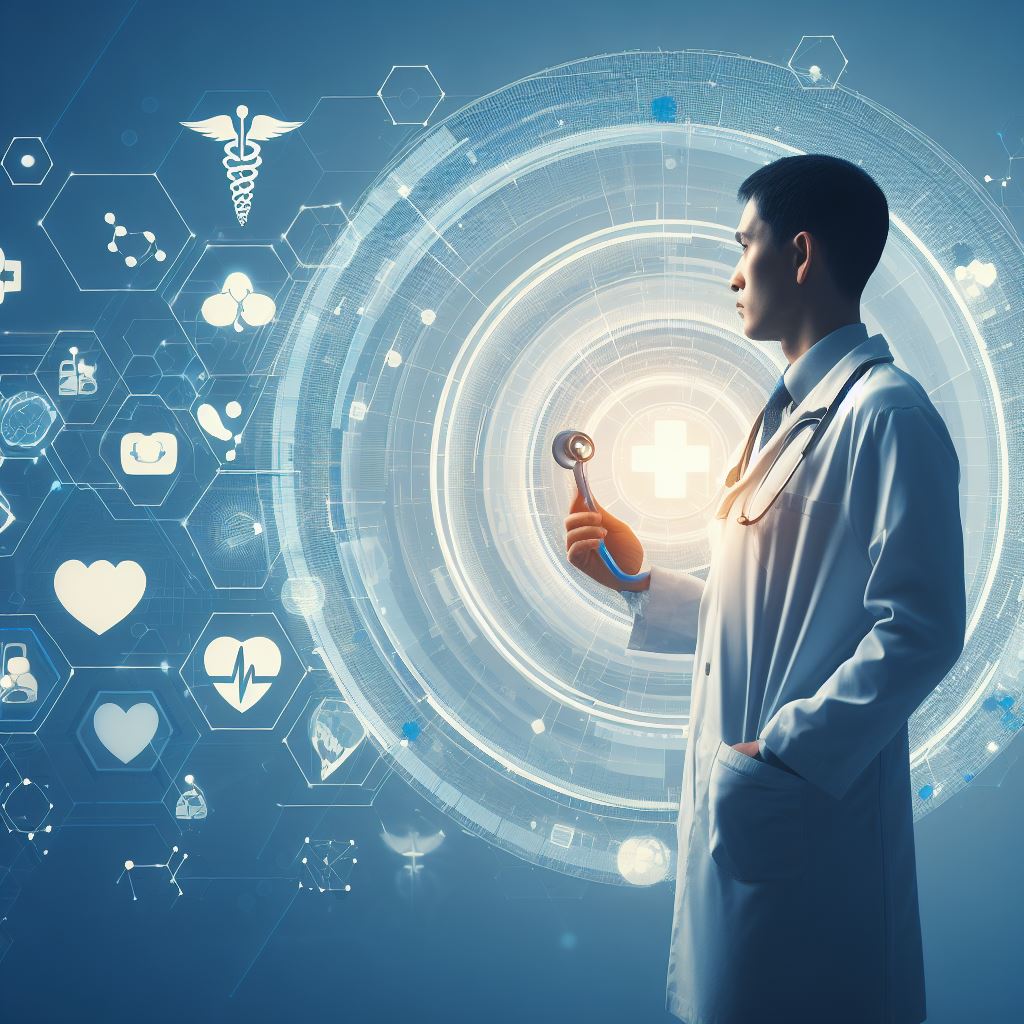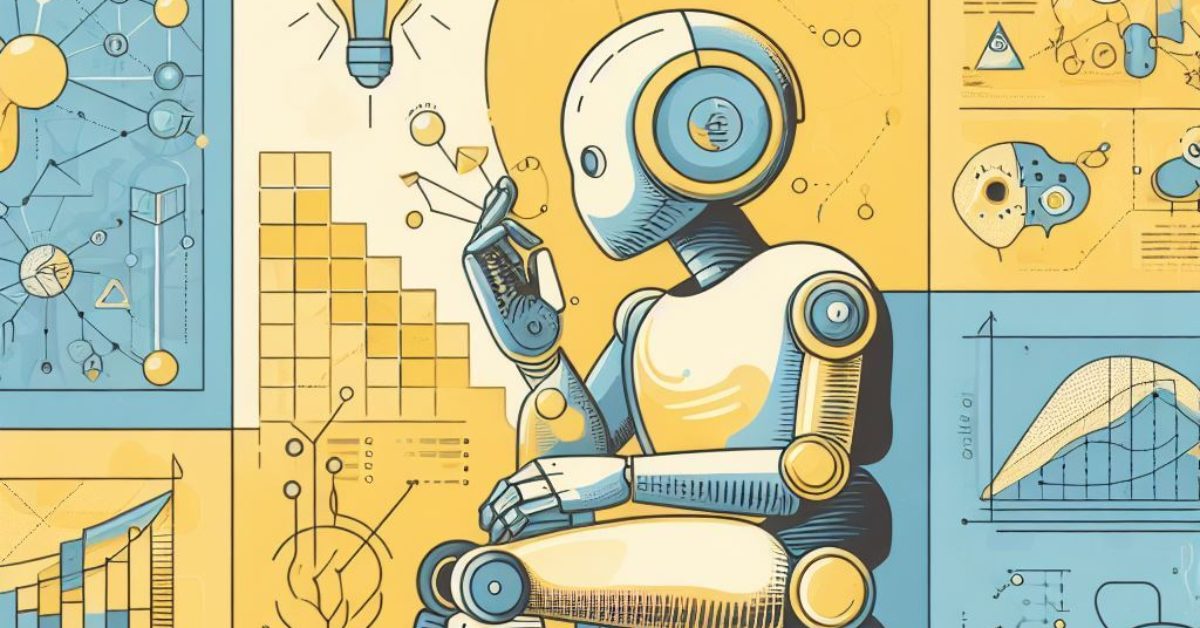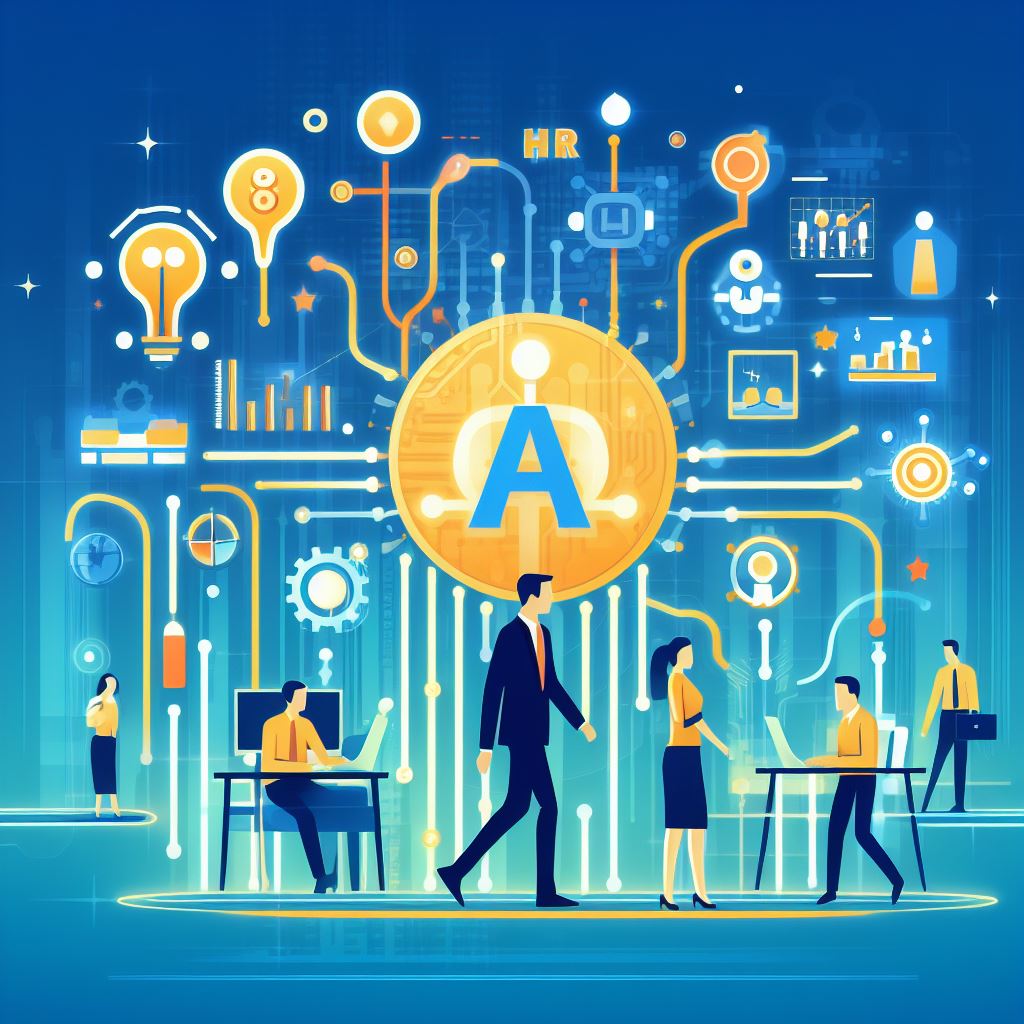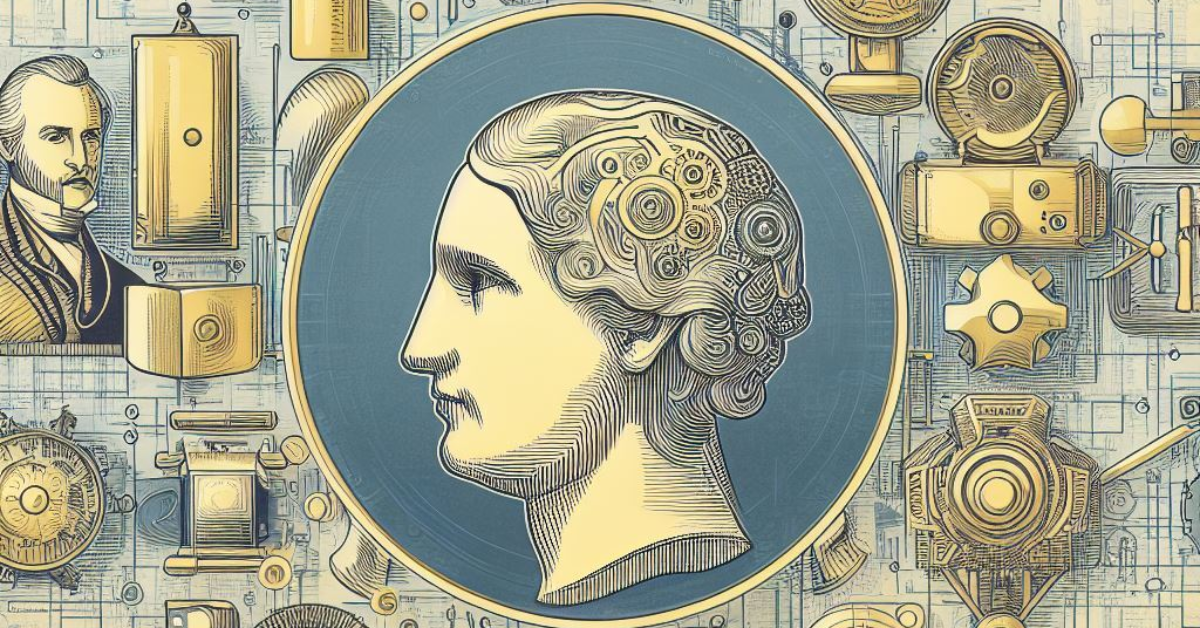AI Technology Reinventing Robotics
October 25, 2023 | by insighttechdaily.com

Table of Contents
Unleashing the Potential of AI in Robotics: A Symbiotic Bond
Artificial intelligence (AI) has paved the way for numerous advancements in various industries, and one field that has significantly benefited from this technology is robotics. The integration of AI into robotics has created a symbiotic bond, unleashing a world of possibilities and revolutionizing the way we perceive and interact with robotics. This bond has transformed the capabilities of robots, allowing them to perform complex tasks with increased efficiency and precision.
One of the key advantages of AI in robotics lies in its ability to enhance autonomy. With AI algorithms, robots can perceive their environment, make informed decisions, and adapt to changing situations in real time. This level of autonomy not only allows robots to navigate complex terrains and interact with humans but also enables them to learn and improve their performance over time. The symbiotic bond between AI and robotics empowers robots to become more autonomous and intuitive, making them valuable assets in various industries, such as healthcare, manufacturing, and even exploration.
Transforming Industries: How AI-Driven Robotics Are Revolutionizing the Workforce
The integration of artificial intelligence (AI) technology in robotics has significantly transformed various industries by revolutionizing the workforce. AI-driven robotics have the potential to enhance productivity, efficiency, and precision in ways never thought possible. By combining advanced algorithms and machine learning capabilities, these robotic systems can perform complex tasks with minimal human intervention.
One of the key advantages of AI-driven robotics is their ability to work continuously and consistently without the limitations of human fatigue or human error. This has led to a significant increase in production output and a reduction in costly errors. For example, in manufacturing industries, AI-driven robots can perform repetitive tasks with unmatched accuracy, reducing the need for human workers in tedious and sometimes dangerous conditions. This not only streamlines operations but also ensures higher quality control and product consistency. As a result, AI-driven robotics have redefined the workforce landscape, empowering industries to achieve new heights of efficiency and productivity.
Enhancing Efficiency and Precision: The Impact of AI Technology on Robotic Systems
AI technology has made significant strides in enhancing efficiency and precision in the field of robotics. As robots become more intelligent and capable of autonomous decision-making, they can carry out tasks with a level of accuracy and speed that was previously unimaginable. This has resulted in streamlined operations, reduced errors, and increased productivity in industries ranging from manufacturing to healthcare.
One of the key advantages of incorporating AI technology into robotic systems is the ability to analyze and process vast amounts of data in real time. This enables robots to adapt and make informed decisions based on the current situation, leading to improved efficiency and precision. For example, in manufacturing plants, AI-enabled robots can monitor production lines, identify potential bottlenecks or issues, and make on-the-spot adjustments to optimize output. Similarly, in healthcare settings, robotic systems powered by AI can analyze patient data, assist in surgical procedures, and deliver precision-driven care. The combination of AI technology and robotics has the potential to revolutionize various industries, enabling them to achieve new levels of efficiency and precision.
Breaking Boundaries: Exploring the Limitless Possibilities of AI-Enabled Robotics
The field of robotics has experienced significant advancements in recent years, thanks to the integration of artificial intelligence (AI) technology. AI-enabled robotics have allowed us to break boundaries and explore new possibilities that were once thought to be unimaginable. With the power of AI, robots have become more than just machines that perform repetitive tasks; they have evolved into intelligent beings capable of learning, adapting, and interacting with their surroundings.
One of the key advantages of AI-enabled robotics is their ability to learn from and adapt to their environment. Traditional robots were programmed with a fixed set of instructions, limiting their capabilities to predefined tasks. However, with AI technology, robots can now analyze and process vast amounts of data, allowing them to make informed decisions and carry out tasks with greater efficiency and precision. This opens up a world of possibilities for industries such as manufacturing, healthcare, and logistics, where robots can seamlessly navigate complex environments, optimize processes, and improve overall productivity.
As the boundaries between AI and robotics continue to blur, we are entering an era where the possibilities seem limitless. AI-enabled robots are no longer limited to performing repetitive tasks in controlled environments; they are now capable of complex problem-solving, collaborative work, and even emotional engagement. This transformative power of AI in robotics has the potential to revolutionize industries and reshape the way we live and work. Whether it’s autonomous vehicles, robotic companions, or intelligent machines that assist in various professional fields, AI-enabled robotics is paving the way for a future where human-machine collaboration reaches new heights.
The exciting journey of exploring the limitless possibilities of AI-enabled robotics has just begun, and the potential for innovation and advancement is immense. As researchers and engineers continue to push the boundaries of what is possible, we can expect to see even more groundbreaking developments in the field. However, along with these transformations come new challenges and ethical considerations that need to be addressed. As we embrace this symbiotic future of AI and robotics, it is crucial to navigate the ethical implications and ensure that these technologies are used responsibly and for the betterment of society. Only then can we fully harness the power of AI-enabled robotics and unlock their true potential.
Empowering Collaboration: The Synergy Between AI and Robotics in a Symbiotic Future
The collaboration between AI and robotics has paved the way for a symbiotic future where the capabilities of both technologies are harnessed to achieve new heights. With AI’s ability to process vast amounts of data and make intelligent decisions, and robotics’ physical prowess and precision, the combination of these two fields has the potential to revolutionize various industries. The synergy between AI and robotics allows for a seamless integration of intelligent algorithms and mechanical systems, leading to enhanced efficiency, productivity, and innovation.
One of the key advantages of this collaboration is the ability to empower robots with learning capabilities. AI-powered robotics can adapt to changing environments and optimize their performance based on real-time data analysis. This enables them to handle complex tasks with precision and accuracy, leading to improved outcomes in fields such as manufacturing, healthcare, and logistics. Furthermore, the collaboration between AI and robotics fosters human-robot collaboration, where machines can complement human workers by automating repetitive or dangerous tasks, increasing overall productivity and safety. The symbiotic relationship between AI and robotics holds immense potential to reshape the way we work and live, paving the way for a future where intelligent machines and humans collaborate seamlessly.
AI Robotics: Pioneering Innovations That Are Reshaping the World
The field of AI robotics has witnessed a surge in pioneering innovations that have the potential to reshape the world as we know it. These cutting-edge advancements have paved the way for robots that possess enhanced intelligence, learning capabilities, and problem-solving prowess. As a result, industries across various sectors are now embracing AI-driven robotics to streamline operations, increase efficiency, and ultimately revolutionize the workforce.
One area where AI-powered robotics has made significant strides is in enhancing efficiency and precision. With the integration of AI technology, robotic systems are now capable of performing complex tasks with unparalleled accuracy and speed. This level of precision not only reduces human error but also allows for greater productivity, cost savings, and improved outcomes. From manufacturing processes to healthcare diagnostics, the impact of AI-enabled robotic systems is transforming industries, pushing the boundaries of what was once thought possible.
From Science Fiction to Reality: Unveiling the Rise of AI-Driven Robotics
AI-driven robotics have long been a fascination in science fiction. From futuristic movies to novels, the idea of intelligent machines working alongside humans has captured our imagination. However, what was once considered mere fantasy is now becoming a reality. With advancements in artificial intelligence (AI), robotics has entered a new era, paving the way for unprecedented possibilities.
The rise of AI-driven robotics brings immense potential for transforming various industries. From manufacturing and healthcare to transportation and agriculture, these intelligent machines are revolutionizing the workforce. With their ability to automate repetitive tasks, enhance precision, and streamline operations, AI-driven robots are increasing efficiency and productivity like never before. As these technologies continue to advance, we are only scratching the surface of their limitless capabilities. The synergy between AI and robotics is opening doors to new opportunities, empowering collaboration between humans and machines for a symbiotic future.
The Future of Automation: How AI Technology Is Redefining Robotics
Artificial Intelligence (AI) technology has marked a significant turning point in the world of robotics, propelling automation into a new era. By integrating AI systems into robotic platforms, we are witnessing a revolution in the capabilities and potential of automated machines. AI-driven robotics have the ability to learn, adapt, and make decisions based on real-time data, unleashing unparalleled efficiency and precision in various industries.
One of the key ways in which AI technology is redefining robotics is through enhanced problem-solving and decision-making abilities. Traditional robots have been programmed to follow pre-determined instructions, limiting their flexibility and adaptability. However, with the integration of AI, robots can now analyze complex data sets and make informed decisions on their own. This breakthrough in automation allows for greater efficiency, as robots can now solve real-world problems in real time, reducing human intervention and enhancing productivity. The potential benefits of these advancements are vast, from streamlining manufacturing processes to improving safety in hazardous environments. With AI at its core, robotics is rapidly evolving, promising a future where machines can autonomously navigate and operate in diverse scenarios.
Overcoming Challenges: Navigating the Ethical Implications of AI-Enhanced Robotics
As AI-driven robotics continues to advance, it is crucial for us to navigate the ethical implications that arise alongside these advancements. One of the key challenges in AI-enhanced robotics is ensuring the responsible and ethical use of this technology. The integration of AI algorithms into robotic systems raises concerns about privacy, security, and bias. For instance, as robotics become increasingly autonomous and capable of making decisions, it becomes paramount to establish guidelines and regulations to prevent AI-powered robots from causing harm or infringing upon human rights.
Navigating the ethical implications of AI-enhanced robotics requires a multidisciplinary approach, involving not just engineers and developers but also ethicists, policymakers, and the wider society. By engaging in open and transparent discussions, we can collectively address these challenges and build a future that harnesses the power of AI-driven robotics while upholding ethical standards. It is essential to strike a balance between innovation and ethical considerations to ensure that technology serves humanity’s best interests and contributes to a more equitable and sustainable future.
Embracing a Symbiotic Future: Uniting AI Technology and Robotics for a Better Tomorrow
As technology continues to advance at a rapid pace, the symbiotic relationship between AI technology and robotics is becoming increasingly evident. This powerful bond holds the potential to reshape the future, revolutionizing industries and enhancing collaboration between humans and machines. By embracing this symbiotic future, we are poised to unlock endless possibilities and pave the way for a better tomorrow.
One of the key benefits of uniting AI technology and robotics lies in their ability to enhance efficiency and precision. Through advanced algorithms and machine learning, AI-driven robots can process vast amounts of data and make informed decisions in real time. This not only improves productivity but also minimizes errors, leading to higher-quality output and improved customer satisfaction. The impact of AI technology on robotic systems is transformative, allowing them to perform complex tasks with unprecedented accuracy, speed, and adaptability. This revolution in automation has the potential to optimize processes across industries, from manufacturing and logistics to healthcare and agriculture, resulting in significant cost savings and improved resource utilization.
FAQs
What is the relationship between AI technology and robotics?
AI technology and robotics have a symbiotic relationship, where AI enhances the capabilities and intelligence of robotic systems.
How does AI technology revolutionize the workforce?
AI-driven robotics are transforming industries by automating tasks, increasing efficiency, and reducing human error, leading to a more productive workforce.
What impact does AI technology have on robotic systems?
AI technology enhances the efficiency and precision of robotic systems, allowing them to perform complex tasks with greater accuracy and adaptability.
What are the possibilities of AI-enabled robotics?
AI-enabled robotics have limitless possibilities, from assisting in healthcare and space exploration to improving transportation and manufacturing processes.
How does AI empower collaboration between humans and robots?
The synergy between AI and robotics enables humans and robots to work together, combining human creativity and problem-solving with the speed and precision of AI technology.
How are AI-driven robotics reshaping the world?
AI-driven robotics are pioneering innovations that are reshaping industries, improving quality of life, and driving economic growth through automation and increased productivity.
How has AI-driven robotics transitioned from science fiction to reality?
Advances in AI technology and robotics have turned science fiction concepts into reality, with AI-driven robots now being used in various fields, such as healthcare, manufacturing, and logistics.
How is AI technology redefining robotics in terms of automation?
AI technology is redefining robotics by enabling autonomous decision-making, adaptive learning, and the ability to analyze and process vast amounts of data, leading to more advanced and efficient automation.
What challenges arise with AI-enhanced robotics in terms of ethics?
The ethical implications of AI-enhanced robotics include concerns around job displacement, privacy, safety, and ensuring responsible use of AI technology in robotic systems.
How does the merger of AI technology and robotics contribute to a better future?
Embracing a symbiotic future of AI technology and robotics leads to improved efficiency, increased productivity, innovative solutions to global challenges, and overall advancements that benefit society.
RELATED POSTS
View all


